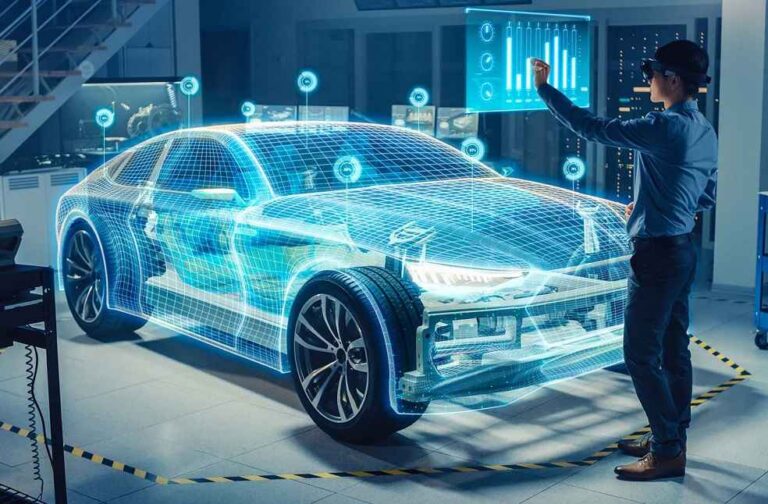The CES 2025 trade show, underway in Las Vegas from January 7 to 10, is typically a stage for the latest consumer-focused innovations in technology and automotive advancements. However, this year, the looming threat of tariffs has shifted the spotlight to economic uncertainties and policy impacts on global supply chains.
The event coincides with the upcoming inauguration of President-elect Donald Trump, who has proposed significant tariffs on imports from Canada, Mexico, China, and other U.S. trading partners. This has sparked widespread concern among manufacturers and analysts about rising costs for businesses and consumers alike.
Tariffs: A Central Discussion Point
“This will be a hot topic,” remarked Deborah Weinswig, CEO of Coresight Research. She noted that tariffs have dominated her pre-event discussions with clients, underscoring the pressure on senior leadership to address these issues.

CES, formerly known as the Consumer Electronics Show, is featuring a keynote speech by Nvidia CEO Jensen Huang, alongside innovations ranging from artificial intelligence (AI) applications to self-driving automotive technology. Despite the futuristic displays, tariffs remain a key focus, with questions about supply-chain shifts and production relocation dominating discussions.
Potential Industry Impact
Honda, which sends 80% of its Mexican production to the U.S., has warned of possible factory relocations if tariffs become permanent. Edmunds estimates that nearly half of new cars sold in the U.S. are produced outside the country, with many parts imported. According to S&P Global, European and American automakers could see up to a 17% reduction in annual core profits if tariffs are imposed on imports from Europe, Mexico, and Canada.
Suppliers, already grappling with weak electric vehicle (EV) demand and razor-thin margins, face additional challenges. “Add to this supply-chain uncertainties and labor shortages, and many suppliers are in dire straits,” said Felix Stellmaszek of Boston Consulting Group.

Trump’s plans to rescind policies promoting EV adoption add further uncertainty to an already fragile industry. Companies are engaged in intense scenario planning to adapt to these potential disruptions.
Tech Meets Policy at CES
Amidst tariff concerns, the race to develop AI-powered and software-enhanced vehicles continues. Automakers like Honda, Toyota, Bosch, and Continental are expected to provide updates on self-driving technology and innovations aimed at improving vehicle safety and ease of use.
High-profile speakers, including Delta Air Lines CEO Ed Bastian, Volvo Group CEO Martin Lundstedt, Panasonic CEO Yuki Kusumi, and X Corp CEO Linda Yaccarino, will address broader industry challenges. Tariff-related questions are expected to dominate discussions across sectors.
“How are companies going to work together from a supply-chain perspective? How can we mitigate rising costs? Can technology offer solutions?” Weinswig queried. “There’s still so much uncertainty, and everyone is trying to prepare for every possible scenario.”
GENERAL | Auto Component Firms Diversify Markets, Innovate to Counter Growth Slowdown





